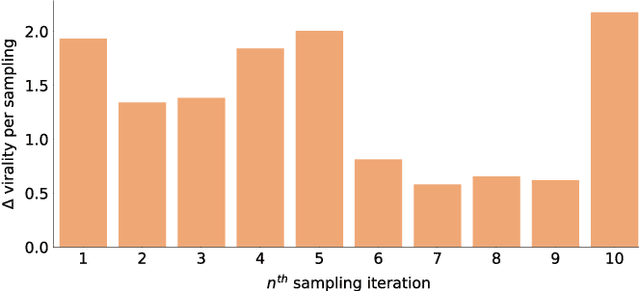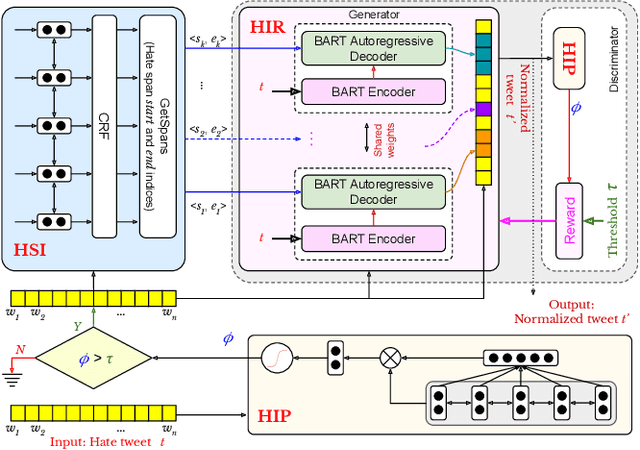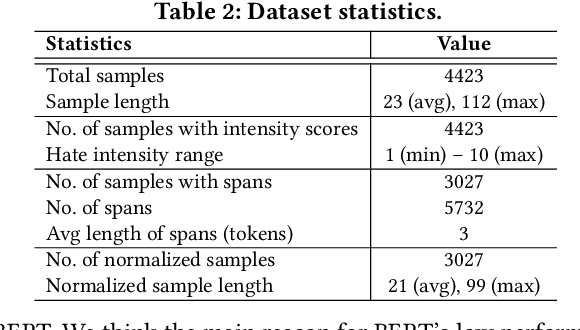Proactively Reducing the Hate Intensity of Online Posts via Hate Speech Normalization
Paper and Code
Jun 08, 2022



Curbing online hate speech has become the need of the hour; however, a blanket ban on such activities is infeasible for several geopolitical and cultural reasons. To reduce the severity of the problem, in this paper, we introduce a novel task, hate speech normalization, that aims to weaken the intensity of hatred exhibited by an online post. The intention of hate speech normalization is not to support hate but instead to provide the users with a stepping stone towards non-hate while giving online platforms more time to monitor any improvement in the user's behavior. To this end, we manually curated a parallel corpus - hate texts and their normalized counterparts (a normalized text is less hateful and more benign). We introduce NACL, a simple yet efficient hate speech normalization model that operates in three stages - first, it measures the hate intensity of the original sample; second, it identifies the hate span(s) within it; and finally, it reduces hate intensity by paraphrasing the hate spans. We perform extensive experiments to measure the efficacy of NACL via three-way evaluation (intrinsic, extrinsic, and human-study). We observe that NACL outperforms six baselines - NACL yields a score of 0.1365 RMSE for the intensity prediction, 0.622 F1-score in the span identification, and 82.27 BLEU and 80.05 perplexity for the normalized text generation. We further show the generalizability of NACL across other platforms (Reddit, Facebook, Gab). An interactive prototype of NACL was put together for the user study. Further, the tool is being deployed in a real-world setting at Wipro AI as a part of its mission to tackle harmful content on online platforms.
 Add to Chrome
Add to Chrome Add to Firefox
Add to Firefox Add to Edge
Add to Edge